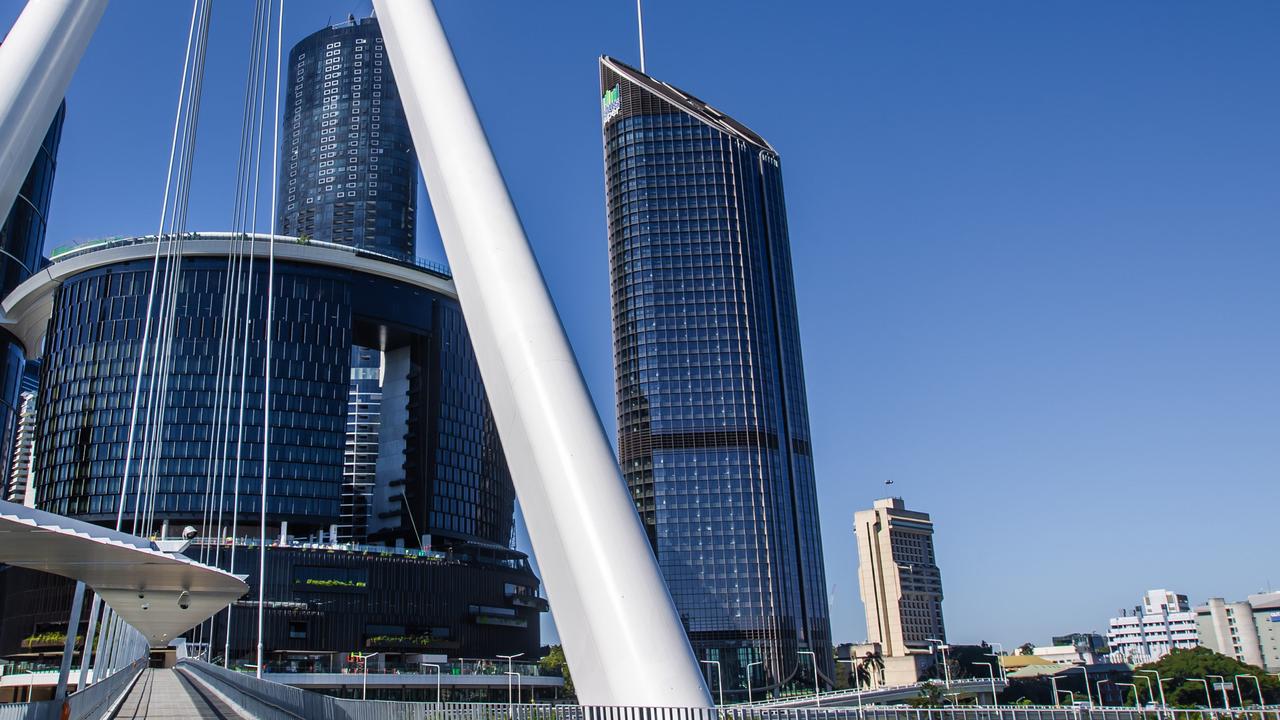WFH’s future more about politics of work than productivity
You might think the hybrid work question would revolve around costs, mental health and productivity. That’s only the start.

Business
Don't miss out on the headlines from Business. Followed categories will be added to My News.
You might think the debate about hybrid work will be settled eventually on the facts: the facts about productivity, the facts about commuting costs, the facts about mental health, the facts about the cost of CBD rental. You might think that, but you might be wrong.
That’s because the conversation about working from home versus working from the office is one that has as much to do with ideology as fact – and the longer workers stay out of the CBD, the more likely hybrid work will continue to be contested ground, almost another version of the culture wars.
It’s been there from the start, of course. Any debate about work plays out against the backdrop of power balances between employers and employees, and beliefs about the meaning of work, all of which can easily divide a dinner table.
Our views about people stepping away from the desk and setting up workstations in the kitchen are coloured by how we see paid work fitting into life; how we view capital and labour; about how “hard” we think people need to work to be classified as “good” workers.
So for some, the WFH of 2020 (deemed necessary for health reasons, and thus initially widely accepted) pretty quickly morphed into being seen as a choice made by people for personal convenience and comfort, and therefore less valid. Or, at least it was a choice made possible only by the generosity of the boss, therefore to be seen as a privilege, just like the pre-Covid days.
If you are a manager used to having staff in a designated space every day, it’s a shock that, with Covid all but over, many of your team have little interest in again joining you, even if you have cafes and lounge chairs and pot plants and paintings. Not to mention free breakfast and gourmet lunches.
Let off the leash (and let’s face it, that’s what happened to knowledge workers in the pandemic), employees are no longer so malleable. It’s as if a couple of hundred years of assumptions about how work should look and feel were swept away in a couple of days in March 2020.
Sorting out the home tech and the communication with colleagues and bosses took a little longer, but WFH was pretty much a done deal from the start.
It’s all been extraordinarily disruptive to the practice and psychology of companies faced with individual workers who want to customise their work arrangements. It’s time consuming and costly trying to be fair, hang on to your staff and stay profitable when there are so many individual demands to deal with. And for many people, WFH is confronting because it runs counter to traditional ideas about hierarchies and systems and the rights of those who pay the bills to call the shots.
(And, yes, we are talking about a slice of the labour market: there are millions in the service and caring professions for whom work has not changed, other than being heavier through lack of staff or absenteeism, and more complex because of virus fears. Not much room for culture wars in these sectors and, given national reticence about higher taxes to pay higher wages, many in aged care and childcare will be stuck in a pre-2020 world for a while yet.)
But screen workers have buried the industrial-era workplace.
Some may want to return to the office, albeit on their terms, for the social connections and psychological health that is an unquantifiable part of work. And some people want to be micromanaged or at least have direct attention from the boss, something which is much easier if all parties are physically present. And some may agree with their bosses that creativity is a team sport, rather than one pursued alone.
But there’s a realignment of power and control under way that could be permanent, even if today’s tight labour market, which favours employees, is freed up. Workers will lose leverage if unemployment increases, but even the trade-off between home and office is unlikely to be a simple one, given the push to lock in change.
In Ireland, The Netherlands and Slovenia, to name a few countries, governments are in the process of legislating to give workers the right to request remote work. Here the government promised at the recent Jobs and Skills Summit to strengthen access for flexible working arrangements in the Fair Work Act, while unions are moving to lock this right into enterprise agreements. The FWA and National Employment Standards already allow certain categories of workers (parents and carers, for example) to request remote work, but embedding this in agreements would normalise such arrangements. It cuts both ways, of course, with potential for employers to later argue for the removal or watering down of such “rights to request” in exchange for pay rises.
Figures vary about just how many Australians are going back to the office for even a day or two a week, but it could be as low as 20 per cent, and even lower on Mondays and Fridays, when trains and buses are noticeably less crowded. A hot summer may push people back because it will be more expensive than ever to cool a home office, but given the flexibility for a lunchtime surf, the impact could be minimal. The nation’s work arrangements may be clearer by the time we celebrate the third anniversary of the Great Experiment in WFH in March next year, but don’t expect them to look much like pre-Covid days.
Until now, most employers have been relatively restrained in their efforts to get people back to the office, but with Covid isolation rules lifting and the approach of a summer of reduced infections, they will probably sharpen the rhetoric. For the past couple of years, as it became clear Covid was delivering labour shortages rather than job losses, many workers felt confident enough to rewrite their personal rules around work – whether on practical or philosophical grounds.
Just how much they can push back on any bid to re-establish old structures will be seen over time. But get ready for a contest likely to be as much about the politics of work as it is about productivity.
Originally published as WFH’s future more about politics of work than productivity



